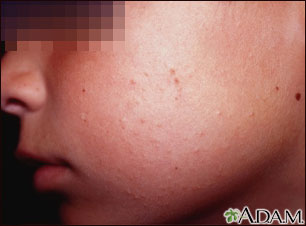Of All A Physician's Roles, The Most Important Is That Of Educator
Clinician. Diagnostician. Prognostician. Healer.
A physician has many jobs to perform, all critical to the appropriate management of what ails our patients. Without astute physical exam skills or a keen ability to sort through a medical history to uncover salient data, the physician is no better at diagnosing a patient than a Google search (and we're quite a lot better, in case anyone was wondering). Without a proper understanding of physiology and pharmacology, the physician is no better at healing than a placebo, and might actually do harm!
As patients, we rightfully base our assessments of our physicians' competence on their ability to (as quickly and non-invasively as possible) determine what's wrong, and what to do about it. Unfortunately, we have also come to view physicians as the barrier to care, rather than the source of care. Who stands between the sick patient and the antibiotic? Whose signature is required before the blood test can be performed?
The fundamental problem with this perception is that it equates the technical work-up and the treatment with "care". However, "Take two of these and call me in the morning" isn't real health care, even if the tablets dispensed are indeed "just what the doctor ordered".
I would argue that the value taken away from a visit with your physician isn't in what you have been prescribed, but rather in what you have been taught. At the end of the day, the physician role most essential to fostering a trusting physician-patient relationship is that of Educator.
As an allergist/immunologist, the majority of the care I provide is for chronic illness, such as asthma, food allergy and immunodeficiency. These are conditions my patients need to deal with on a regular basis, day in and day out. There is no magic pill I can prescribe to cure them - no miracle treatment. The most important thing I can do is spend the time to teach them about their physiology, how the medicines I am prescribing work, or why I suggest a particular treatment over another. I can draw pictures, demonstrate the proper use of inhalers and injections, or review an action plan for a severe allergic reaction. Whether the topic at hand is skin care, allergen avoidance or dietary management, there are always opportunities for new education or reinforcement of existing skills.
Quality patient education is a mutually rewarding exercise: 1) the patient gains a more complete understanding of what is going on within his/her own body and has more insight into the rationale behind the physician's recommendations, and 2) the physician builds confidence and trust with the patient and dramatically improves the likelihood of compliance with recommended therapy. This has direct consequences for improved health. It is truly a win-win.
As the continual pressures on physicians to cut costs and optimize efficiency increase, we must resist the push towards gaining these efficiencies at the cost of spending less and less time with our patients. Although it takes a significant investment of time and effort to make patient education a cornerstone of a medical practice, the dividends paid are truly "healthy".
A physician has many jobs to perform, all critical to the appropriate management of what ails our patients. Without astute physical exam skills or a keen ability to sort through a medical history to uncover salient data, the physician is no better at diagnosing a patient than a Google search (and we're quite a lot better, in case anyone was wondering). Without a proper understanding of physiology and pharmacology, the physician is no better at healing than a placebo, and might actually do harm!
As patients, we rightfully base our assessments of our physicians' competence on their ability to (as quickly and non-invasively as possible) determine what's wrong, and what to do about it. Unfortunately, we have also come to view physicians as the barrier to care, rather than the source of care. Who stands between the sick patient and the antibiotic? Whose signature is required before the blood test can be performed?
The fundamental problem with this perception is that it equates the technical work-up and the treatment with "care". However, "Take two of these and call me in the morning" isn't real health care, even if the tablets dispensed are indeed "just what the doctor ordered".
I would argue that the value taken away from a visit with your physician isn't in what you have been prescribed, but rather in what you have been taught. At the end of the day, the physician role most essential to fostering a trusting physician-patient relationship is that of Educator.
As an allergist/immunologist, the majority of the care I provide is for chronic illness, such as asthma, food allergy and immunodeficiency. These are conditions my patients need to deal with on a regular basis, day in and day out. There is no magic pill I can prescribe to cure them - no miracle treatment. The most important thing I can do is spend the time to teach them about their physiology, how the medicines I am prescribing work, or why I suggest a particular treatment over another. I can draw pictures, demonstrate the proper use of inhalers and injections, or review an action plan for a severe allergic reaction. Whether the topic at hand is skin care, allergen avoidance or dietary management, there are always opportunities for new education or reinforcement of existing skills.
Quality patient education is a mutually rewarding exercise: 1) the patient gains a more complete understanding of what is going on within his/her own body and has more insight into the rationale behind the physician's recommendations, and 2) the physician builds confidence and trust with the patient and dramatically improves the likelihood of compliance with recommended therapy. This has direct consequences for improved health. It is truly a win-win.
As the continual pressures on physicians to cut costs and optimize efficiency increase, we must resist the push towards gaining these efficiencies at the cost of spending less and less time with our patients. Although it takes a significant investment of time and effort to make patient education a cornerstone of a medical practice, the dividends paid are truly "healthy".
"The most important role of a physician is that of an educator. I believe in empowering patients to optimize health by teaching them to understand how their bodies work."



Comments
Post a Comment
Thanks for taking the time to comment on this blog's posts! Let's keep the discussion engaging and free of frivolous advertising or vulgarity. It's a family show, folks!